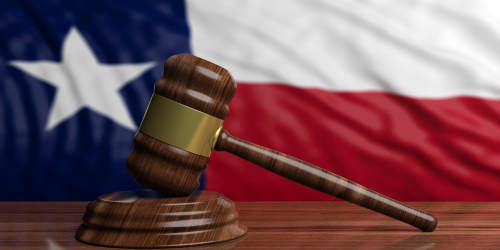Lawyer-Priest Wins Medal
In August, the Rev. Robert F. Drinan, a former congressman and a Jesuit who teaches at the Georgetown University Law Center, will join an elite group when he receives the American Bar Association’s highest form of recognition for service to American jurisprudence—the ABA Medal.
He joins the illustrious ranks of Oliver Wendell Holmes, Felix Frankfurter, Leon Jaworski and Thurgood Marshall, to name a few of those who have received the medal since it was first awarded 75 years ago (for a list of recent ABA Medal Winners, click here).
“It’s the highest award the ABA gives,” says ABA spokeswoman Nancy Slonim. “It signifies somebody has rendered exceptional service to the cause of jurisprudence. The contributions of each recipient are different, but they are on a major scale. It recognizes people who have done things that have had a national impact on justice in this country.”
The House of Delegates, of which Drinan was once a member, will present him with the medal on Aug. 9 during the ABA Annual Meeting in Atlanta. Measuring 3 inches in diameter, the sterling silver and 24-karat gold-plated coin bears the American Bar Association inscription and the aspiration: “To the end it may be a government of laws and not men.”
Drinan is in agreement. He sees law as a civilizing factor that can save people, or at least save lives.
“Instead of thinking about war, we have to say we believe in the rule of law,” he says, noting that there are recognized rights in international law.
The ABA and the legal profession as a whole, Drinan says, have a responsibility to ensure international human rights through the law. One way to do this, he adds, is to keep pressing the United States to ratify the International Criminal Court. “If we did that, we would have a permanent Nuremberg,” he says, recalling the tribunal that dispensed justice to Nazi war criminals.
PUSHING FOR THE ICC
In an effort to build support for the court in this country, Drinan has served on the ABA’s ICC task force.
That’s an extension of the civil and human rights work he has done for the association.
“He has been actively involved in all kinds of things in the ABA for longer than most of us have even been members,” says Joan F. Kessler, who chairs the Individual Rights and Responsibilities Section.
Kessler points to Drinan’s service as chair of the section in 1990-91 and chair of the Family Law Section in 1966-67. “Not very many people have chaired two sections,” she notes.
Years before she knew Drinan for his work with the ABA, Kessler says, she knew of his civil rights work when he was dean of Boston College Law School in the 1960s. At that time, Drinan came to the aid of the law students at Marquette University in Milwaukee, where Kessler was enrolled. The school administrators threatened to discipline any students who cut classes to teach at “freedom schools” that were created to help black students obtain the same educational opportunities as whites, she says.
Drinan responded in a letter advising those law students that they would be admitted full-credit, no-questions-asked to Boston College. The Marquette administration backed down.
“Father Drinan was one of my heroes before I met him,” Kessler says. “My introduction to Marquette was the controversy at the freedom schools and Father Drinan’s response.”
Drinan left Boston College in 1971, when he became the first Roman Catholic priest elected to Congress. Those who revered the firebrand priest embraced his “Father Knows Best” campaign slogan.
To detractors, he was “the Mad Monk of Massachusetts.”
A vehement opponent of the war in Vietnam, Drinan was the first to call for the impeachment of President Richard Nixon after he ordered the bombing of Cambodia. The Massachusetts Democrat also ruffled the feathers of the church hierarchy with his pro-choice stance after abortion became legal in 1973.
But the voters loved him, and the Catholic cleric served a decade in Congress. In May 1980, he was headed for an assured sixth term when Pope John Paul II ordered him not to seek re-election.
Choosing the priesthood over politics, he continued to champion the cause of human dignity by teaching law at Georgetown University, his alma mater.
“The principal thing I did was being a Jesuit priest,” he says, although at various times he also has been an attorney, activist and academician. “That’s the essence of my life.”



